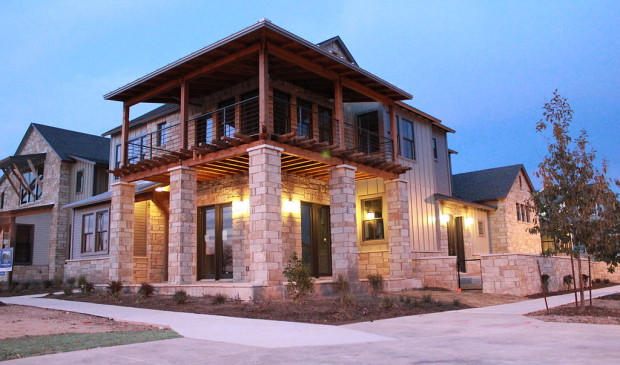Council may revise Mueller Commission eligibility
Thursday, May 7, 2015 by
Tyler Whitson Though residents of any Austin neighborhood can currently join the commission that guides City Council on the Mueller development, a proposed ordinance would limit membership to those who live in that community and 24 surrounding neighborhoods. Council members debated the merits of such a change at a work session Tuesday as they consider making it official at today’s meeting.
Mayor Pro Tem Kathie Tovo said the ordinance she has sponsored is a response to requests from Mueller residents and members of the body itself, called the Robert Mueller Municipal Airport Plan Implementation Advisory Commission.
“The role of this group is to really make sure that the vision for Mueller is being implemented,” Tovo said. “And it has, as I understand, typically been comprised of people who either reside in Mueller or reside in one of the adjoining areas. All this would do is really just put that into our … standard operating procedure.”
The main task of the commission is to make recommendations to Council on implementing the Robert Mueller Municipal Airport Master Plan, which guides the creation of the new urbanist Planned Unit Development in East Austin. Mueller, constructed on the site of the city’s former airport, is a joint project between the City of Austin and Catellus Development.
If adopted, the change would go into effect July 1, lining up with implementation of the city’s new boards and commissions structure.
The commission will dissolve when the city terminates its Master Development Agreement with Catellus. According to a resolution that the previous Council passed Dec. 11, the city expects this to happen in 2020, when Mueller reaches full build-out.
At that point, Mueller residents will be able to form a neighborhood plan contact team, which will take on the task of developing and enforcing an official neighborhood plan. Neighborhood residents and those who own property or businesses in the planning area will be eligible to join.
Not to be confused with a contact team, Mueller does currently have a neighborhood association.
Mayor Steve Adler expressed some concerns about the proposed ordinance, stating that it would limit commission participation to “just one type of stakeholder associated with the Mueller project.”
Boards and commissions membership eligibility is typically not based on geographic location, though there are exceptions. As the city transitions that system to more closely match the 10-1 district arrangement, overall membership may actually become more geographically diverse.
“A lot of people are impacted by what happens (in Mueller). There are people that work there that don’t live there,” Adler said. “While I believe that the people who are in the neighborhood should have a significant voice in that panel when they give us advice, if it’s only people that live there, then the recommendations that come from that panel would be incomplete, in my mind.”
Calling it a “different animal,” Tovo responded that the commission more closely resembles a contact team than any other option that Mueller residents currently have available.
“The Mueller community members who have been supporting this have rightly said that there’s a lot of information that they have as residents or nearby residents that is important to implementing (the master plan),” Tovo said.
The December resolution states that the residents of 16 neighborhoods surrounding Mueller conceived the design guidelines for the development.
Tovo said she added the additional neighborhoods to the ordinance after Council Member Greg Casar — a co-sponsor — pointed out that they are as close in proximity as the others are to Mueller.
Council Member Ora Houston, who was involved in Mueller’s design and also co-sponsored the ordinance, offered her perspective. “The neighbors feel very disconnected from Mueller,” she said.
“There’s still some lingering concerns about how Mueller does business, who lives there, what their core values are, how they engage and reach out into the community, and I think it’s beneficial to have people from those surrounding neighborhoods who are able to go in and talk about those concerns,” Houston continued.
“I certainly understand that you don’t see a broad community perspective,” she said, addressing Adler. “Sometimes we talk about a broad community perspective and sometimes we talk about localized. I think there are … a variety of neighborhoods around that have very different issues, and I think it’s important for their voices to be heard in this process.”
Council Member Pio Renteria, who was also involved in the establishment of Mueller and co-sponsored the ordinance, said he is proud of Mueller, particularly its Affordable Homes Program, which covers 25 percent of home sales and rentals. “You can build a community where it’s not only economically integrated, but also it’s integrated racially,” he said.
“It’s inclusive,” Renteria continued. “You can drive through there and you can’t tell whether there is a low-income person living in that community. I wish that all of Austin would just wake up and see … that all mixed races can live in one community, and live in peace and harmony and make it really prosperous so that our children can learn that this is the way that future communities should look.”
Aside from Mueller, the neighborhoods included in the ordinance are Austin Heights, Blackland, Blackshear, Cherrywood, Clifford Sanchez, Coronado Hills/Creekside, Delwood II, Hancock, Highland, Hyde Park, JJ Seabrook, McKinley Heights, MLK/Airport, Northfield, North University, Ridgetop, Rosewood, Pecan Springs/Springdale, Skyview, St. John, Swede Hill, University Hills, Wilshire Wood and Windsor Park.
Photo courtesy of Garreth Wilcock (Flickr: Mueller Estate Home) [CC BY-SA 2.0], via Wikimedia Commons.
You're a community leader
And we’re honored you look to us for serious, in-depth news. You know a strong community needs local and dedicated watchdog reporting. We’re here for you and that won’t change. Now will you take the powerful next step and support our nonprofit news organization?










